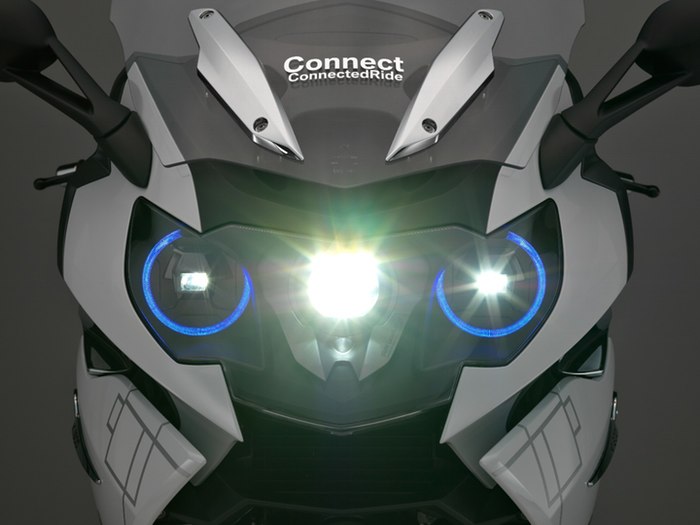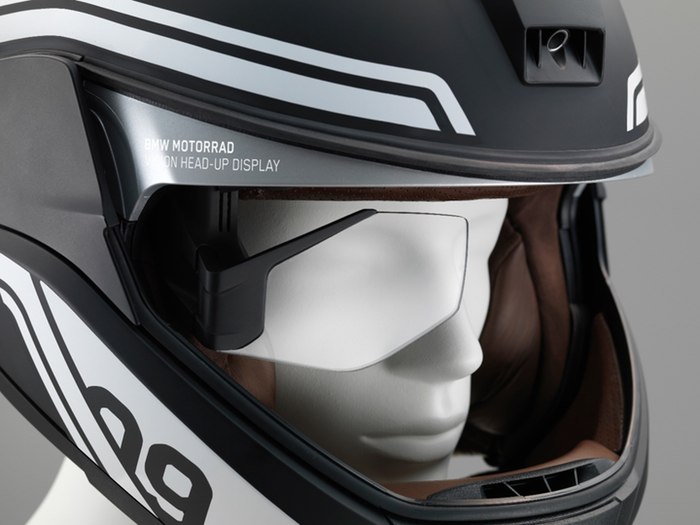The Near Future
BMW Innovations
John Newman
A wise and erudite woman motorcycle journalist I worked with a number of years ago reckoned that the best way to increase skill and experience was to cover the speedometer, ride as you saw the conditions, and handle the bike at a speed you felt confident and comfortable with: not having those mph figures in front of you. Think about it. For people who ride track days, or in off-road events, this is what happens, and their skill levels are more honed than most riders.
The Consumer Electronics Show (CES), that has just closed its doors in Las Vegas, is the biggest and arguably the most influence gadget fest in the world. All the major players launch their innovations and new inventions at this gig and, being Las Vegas, there is much hype about self-drive cars, robotic ability etc, etc. One of this year's featured mega gadgets was a drone capable of carrying a person at speeds of up to 63mph. If they become a consumer reality, the daily commute and parking will be interesting to say the least.

Motorcycling is not often represented. But this year BMW has made an appearance and introduced to the waiting two-wheel-world two potential products that it will market under the increased safety banner. On the K1600GTL, BMW has connected the same laser light technology that is available to drivers of its top end cars. It projects a pure bright white light, resulting in a high-beam range of 600 metres (1,968 ft); double the distance of conventionally available lighting and an undoubted advance. Night riding, especially in poor conditions, has never been an experience we enjoy very much.
Next up is BMW's HUD (Head-Up Display) helmet. Not a new idea as they have been around in experimental mode for a while now, and like most new innovations, once a breakthrough is made, it's just a matter of time before the 'mass' market is cracked. The BMW system, which is expected to be available in the next few years, linking to its 'ConnectedRide' concept, employs a glass display over the rider's right eye, projecting a range of information that is conventionally seen on an instrument display panel: speed, fuel level, gear, temperature etc.

It can also be programmed to an individual rider's needs. It has a rear facing camera; possibly substituting for mirrors. And the prototype helmet is also equipped with a mini-computer and speakers, wirelessly controlled by a multi-controller on the left handlebar. Power is via two batteries in the rear of the helmet that, at the moment, have a rechargeable life of around five hours. BMW envisages more functions including bike-to-bike communication that will transmit road information in real time from one rider to another.
There are many among us who like to keep their machinery and riding experiences as straightforward and uncomplicated as possible. But those who grow up exposed to the 21st-century panoply of gizmos and electronica, will no doubt integrate all this in their futuristic stride.
What do you think about BMW's potential new products? Share your thoughts with us at
[email protected].



